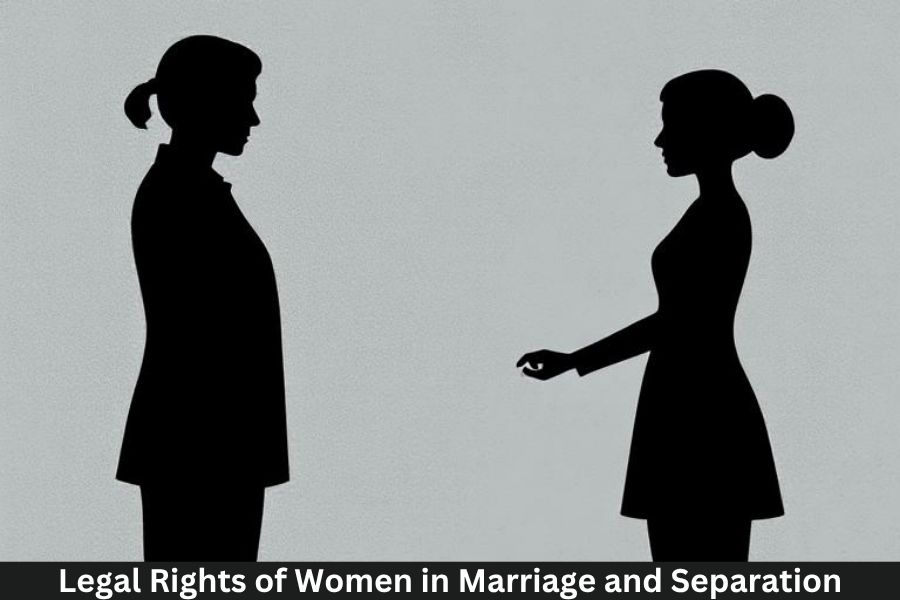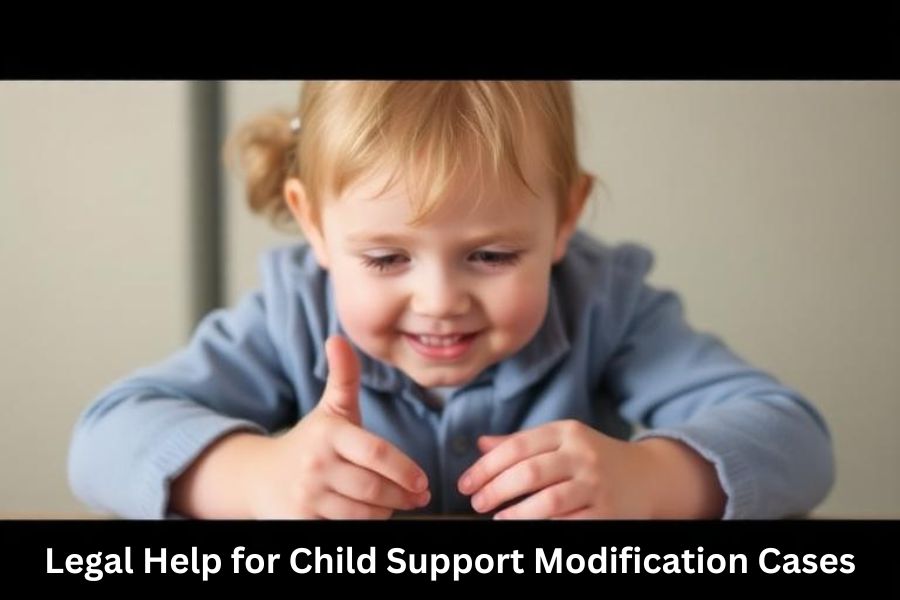Marriage is one of the most important social institutions, but it also comes with legal responsibilities and protections — especially for women. Over the years, Indian law has evolved to protect women’s rights in marriage, separation, and divorce. Understanding these legal rights of women in marriage and separation is essential for safeguarding dignity, equality, and justice in relationships.
This comprehensive guide outlines every major legal protection available to women under Indian law.
Introduction
Women’s legal rights in marriage go far beyond rituals and ceremonies. They encompass financial security, protection from abuse, property rights, maintenance, and freedom from coercion. Whether married under Hindu, Muslim, Christian, or Special Marriage Acts, Indian law ensures that women are not left vulnerable during marriage or separation.
Key Laws Protecting Women in Marriage
India has several personal laws that govern marriage based on religion, along with uniform laws applicable to all.
Major Legal Frameworks Include:
- The Hindu Marriage Act, 1955
- The Special Marriage Act, 1954
- The Indian Divorce Act, 1869 (for Christians)
- The Muslim Personal Law (Shariat) Application Act, 1937
- The Protection of Women from Domestic Violence Act, 2005
- The Dowry Prohibition Act, 1961
Each of these laws aims to ensure fairness, equality, and protection for women in marital relationships.
Right to Equality in Marriage
Under Article 14 and 15 of the Indian Constitution, women are guaranteed equality before the law and protection against gender-based discrimination.
This ensures that:
- Women have equal say in marriage-related decisions.
- They cannot be forced into marriage against their will.
- They are entitled to respect, dignity, and autonomy in marital life.
Right to Streedhan (Woman’s Property)
Streedhan refers to all gifts, jewelry, money, and property a woman receives before, during, or after marriage.
According to the Hindu Succession Act, 1956, Streedhan is the woman’s exclusive property, and her husband or in-laws have no legal right over it.
If it is taken away, she can legally reclaim it under Section 14 of the Hindu Succession Act or Section 405 of the Indian Penal Code (Criminal Breach of Trust).
Right to Residence
Every married woman has the legal right to live in her matrimonial home — regardless of whether she owns it or not.
Under the Protection of Women from Domestic Violence Act (PWDVA), 2005, she cannot be thrown out without due legal process.
Even if the husband is absent or deceased, this right remains enforceable.
Right Against Domestic Violence
Domestic violence doesn’t just mean physical abuse — it includes emotional, verbal, sexual, and economic abuse.
The Domestic Violence Act, 2005 protects women from all forms of abuse and empowers them to:
- File a complaint against the husband or in-laws
- Obtain protection orders from the court
- Seek monetary relief and custody of children
- Continue to live in the shared household
This act ensures women have both legal and emotional security within marriage.
Right to Maintenance and Financial Support
If a woman is deserted or financially neglected, she has the right to maintenance — regular financial support from her husband.
Relevant Provisions:
- Section 125 of the Criminal Procedure Code (CrPC): Allows a woman to claim maintenance if her husband neglects or refuses to maintain her.
- Hindu Marriage Act (Section 24 & 25): Provides for interim and permanent alimony.
- Muslim Women (Protection of Rights on Divorce) Act, 1986: Ensures reasonable provision and maintenance post-divorce.
The amount of maintenance depends on factors like income, living standards, and dependents.
Right to Divorce and Legal Separation
Women have the right to seek divorce or judicial separation on valid legal grounds such as:
- Cruelty (mental or physical)
- Desertion
- Adultery
- Conversion to another religion
- Mental disorder or incurable disease
- Non-consummation of marriage
Under the Hindu Marriage Act, 1955 and Special Marriage Act, 1954, courts can grant divorce or separation while ensuring fair settlement for the woman.
Right to Alimony After Separation or Divorce
Once divorced, women are legally entitled to alimony or financial settlement. This helps them maintain their lifestyle and financial stability after separation.
Courts consider:
- Duration of marriage
- Husband’s income and assets
- Wife’s financial condition
- Custody of children
This right ensures financial independence and prevents post-divorce hardship.
Right to Custody of Children
In separation or divorce, the best interest of the child is the guiding principle for custody.
Under Hindu Minority and Guardianship Act, 1956, and Guardians and Wards Act, 1890, courts often grant custody to mothers, especially for young children.
Even if the husband gets custody, the mother has the right to visitation and involvement in the child’s upbringing.
Right to Protection Against Dowry Harassment
The Dowry Prohibition Act, 1961 makes giving or demanding dowry illegal.
Under Section 498A of the Indian Penal Code (IPC), harassment or cruelty by husband or in-laws for dowry is a cognizable and non-bailable offense.
Victims can:
- File a FIR at the nearest police station
- Approach a Women’s Cell or NGO for immediate support
Dowry-related violence is treated seriously under Indian law, ensuring women’s safety in marriage.
Right to Parental Property
With the Hindu Succession (Amendment) Act, 2005, daughters have equal rights as sons in ancestral property.
A married woman can:
- Inherit parental property
- Demand her legal share even after marriage
- Pass it on to her children
This law ensures financial security and gender equality in inheritance.
Right to File Criminal Charges for Abuse or Neglect
Under Section 498A of the IPC, any act of cruelty — physical or mental — by a husband or in-laws is a criminal offense.
Punishment includes imprisonment up to 3 years and fines.
This gives women a strong legal recourse against harassment or domestic cruelty.
Right to Remarry
After a valid divorce, every woman has the right to remarry without social or legal restriction under the Hindu Marriage Act (Section 15).
This right empowers women to rebuild their lives and pursue happiness independently.
Right to Free Legal Aid
Women from economically weaker backgrounds are entitled to free legal aid under the Legal Services Authorities Act, 1987.
They can approach District Legal Services Authorities (DLSA) or National Commission for Women (NCW) to get assistance with:
- Filing cases
- Legal representation
- Counseling and mediation
Right to Protection from Social Stigma
Laws and judgments now recognize that women facing separation or divorce must not face social discrimination.
The Supreme Court has upheld women’s rights to live with dignity and independence regardless of marital status.
Women have the right to:
- Live separately without losing maintenance rights
- Continue using the husband’s surname or not, as per choice
- Be free from societal coercion to “reconcile”
Conclusion
Marriage should never compromise a woman’s freedom, dignity, or equality. Indian law ensures that women are protected — not just within marriage but also after separation or divorce.
Understanding these legal rights empowers women to make informed decisions, demand justice, and live independently without fear.
Every woman deserves not just a marriage, but a marriage rooted in respect, equality, and choice.
FAQs
Q1: What are my rights if my husband abandons me?
You can file for maintenance under Section 125 CrPC and seek protection or residence under the Domestic Violence Act, 2005.
Q2: Can I stay in my husband’s house after separation?
Yes, under the PWDVA 2005, you have the right to residence in the shared household until legal proceedings conclude.
Q3: How much alimony can a woman get after divorce?
Alimony depends on the husband’s income, the wife’s financial condition, and the duration of the marriage. Courts usually aim for a fair and reasonable settlement.
Q4: Can I file a case for emotional abuse?
Yes, emotional or mental cruelty is recognized as a valid ground for divorce and punishment under Section 498A IPC and Domestic Violence Act.
Q5: What are my rights if I’m in a live-in relationship?
Under the Domestic Violence Act, women in live-in relationships are also entitled to protection, maintenance, and residence rights.


